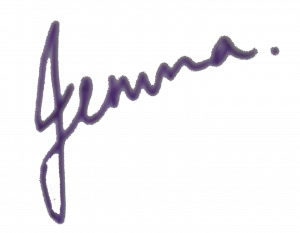Have you ever felt that grip of imposter syndrome wrap you so tightly you question your innermost belief in yourself?
Thoughts creep in like, ‘Do I belong here?’ ‘Am I good enough?’ ‘Do I really have what it takes to do this?’
Have you ever heard your colleagues, partner or friends say things like, “You are the best person for that job,” or, “I don’t know how you do that,” and, “That was exactly what I needed today, you rocked that,” but deep down you tell yourself that story can’t be true.
Why do we do that?
Why do we create this deficit narrative of ourselves? It’s beyond modest and can be psychologically unsound….it’s almost inviting fear and shame to come and have a party!
When we go into that spiral, I think the question we need to ask ourselves is, ‘Is this thinking serving me?’
Adam Grant might provoke us to ask, ‘Am I priming myself for my BEST SELF through this self-talk?’
Adam goes on to say that we should be our last judge. I love this idea of positioning our esteemed colleagues and family as humans we trust with our best intentions at heart to advise us. They lift us up, smack us on the forehead and give us sound advice to move forward. Letting go of the spiralling self doubt is liberating and creates more space to reach our potential, take risks and seek out our inner brave.
At a recent get-together with friends, some of us were feeling extra vulnerable and shared some of our most inner fears. Having complete trust as a group, even though some of us were new to the fold, we challenged each other’s thinking, acknowledging the fear we were holding onto and ways to face it (not let it go) moving forward.
How do we do that in a school environment for our students? How do we be a scaffold for our young people to rise up, embrace their inner brave and reach their hidden potential when their self talk says things like, ‘I can’t do this,’ ‘I don’t know any of this stuff,’ or, ‘I’m stupid.’
I think it comes back to doing education ‘with’ them. Operating in the WITH box we can provide high support by nourishing and encouraging their character growth, and equally high accountability through expectations and boundaries, helping every student be their authentically, imperfect, brave selves.
Planting that seed for them to truly believe they can do it. Priming them for being in the zone of confusion or learning pit, a place where it may be hard, but reminding them that they can do hard things.
Doing things FOR them is never going to enable them take those risks, and get comfortable with being uncomfortable. As educators, we can offer trusted advice if they want to give up, just as our colleagues and friends do for us when we have that gripping and entrenched fear of failure.
So…
How will you embrace your inner brave as an educator when you feel that thinking creep in?
How will you step in when our students are thinking in a deficit way based on fear and shame that is stopping them from reaching their potential?
